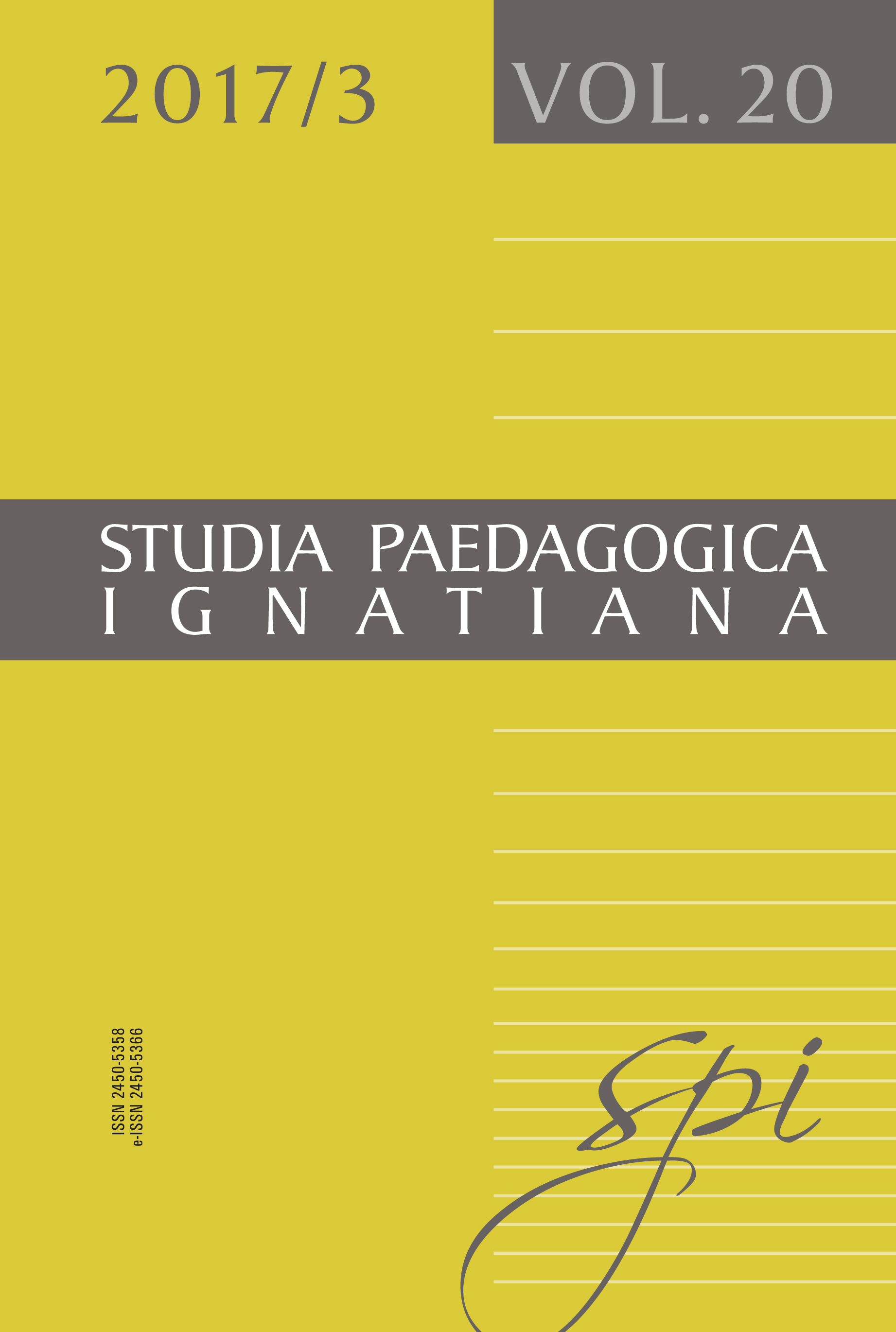The Possibility of Building a Personalised Learning Space to Support the Development of Children at Early School Age
DOI:
https://doi.org/10.12775/SPI.2017.3.005Keywords
personal learning environment, learning space, supporting the development of a child in early school age, virtual environment, information and communication technologiesAbstract
As a result of the dynamic development of new information and communication technologies, today’s educational environment has becoming increasingly personalized. On the one hand, it contributes to the specificity of the new digital media and the ability to create a virtual space in which to place the process of learning and teaching, and the other to the current trends in the approach to the learning process. These trends indicate the need to adapt the process of learning to the specific needs of the student to a much larger extent than to date. They put the emphasis on student-centered learning and independence in undertaking educational activities. In the context of these phenomena, an important part of the educational process seems to consider personalizing actions when designing the educational environment. The object of this study was a personalized educational space, adapted to the possibilities of child development. The goal study was to describe the possibility of constructing such a personalized learning space to support student development, both in theory and in a practical context. In these considerations the authors focused primarily on the needs of children at early school age. It was pointed out that the teaching tailored to the individual preferences of each student is possible for children with different intellectual abilities. It is a task which should be met by every teacher of early childhood education, considering it not as a problems but rather a challenge. Moreover, some types of resources and online tools were identified which can be useful for educational activities from the point of view of individual pupils.
References
Bałachowicz J., Edukacja dziecka w okresie przemian kulturowych, w: Kompetencje kluczowe dzieci i młodzieży. Teoria i badania, red. J. Uszyńska-Jarmoc, M. Bilewicz, Wydawnictwo Akademickie „Żak”, Warszawa 2015, s. 13–37.
Banyard P.E., Underwood J., Understanding the Learning Space (4.07.2008). Elearningpapers, https://dialnet.unirioja.es/servlet/articulo?codigo=
[dostęp: 7.10.2016].
Dudel B., Głoskowska-Sołdatow M., Współczesna przestrzeń edukacyjna uczniów klas młodszych, w: Wielowymiarowość przestrzeni życia współczesnego dziecka, red. J. Izdebska, J. Szymanowska, Trans Humana Wydawnictwo Uniwersyteckie, Białystok 2009, s. 171–182.
Juszczyk S., Dydaktyka informatyki i technologii informacyjnej, Wydawnictwo Adam Marszałek, Toruń 2006.
Kamińska J., Ocenianie osiągnięć uczniów w edukacji wczesnoszkolnej, Wydawnictwo Harmonia, Gdańsk 2000.
Kupisiewicz C., Kupisiewicz M., Słownik pedagogiczny, Wydawnictwo Naukowe PWN, Warszawa 2009.
Nalaskowski A., Przestrzenie i miejsca szkoły, Oficyna Wydawnicza „Impuls”, Kraków 2002.
Personal Learning Environments, http://horizon.wiki.nmc.org/Personal+Learning+Environments [dostęp: 4.10.2016].
Personal Learning Environments. NMC Horizon Report: 2012 K-12 Edition, http://www.nmc.org/pdf/2012-horizon-k12-ple.pdf [dostęp: 4.10.2016].
Peszko P., Co to jest flipped classroom? Jak działa odwrócona klasa?, http://blog.2edu.pl/2011/09/flipped-classroom-odwrocona-klasa-czyli.html [dostęp: 11.10.2016].
Podstawa programowa kształcenia ogólnego dla szkół podstawowych, Dz.U. 2016, poz. 895, Załącznik nr 2.
Pulak I., Projektowanie spersonalizowanego środowiska kształcenia jako element information literacy, „Bibliotheca Nostra. Śląski Kwartalnik Naukowy” 2012, nr 2(28), s. 87–99, http://www.sbc.org.pl/dlibra/docmetadata?id=61361&from=publication [dostęp: 4.10.2016].
Rafał-Łuniewska J., Indywidualizacja nauczania a edukacja wczesnoszkolna, https://www.ore.edu.pl/materiay-do-pobrania-41018/category/244-specyficzne-trudnoci-w-uczeniu-si?download=2846:indywidualizacja-nauczania-a-edukacja-wczesnoszkolna [dostęp: 5.10.2016].
Sterna D., Ocenianie kształtujące w praktyce, Wydawnictwo CEO, Warszawa 2006.
Strategia wyprzedzająca tradycyjną lekcję, Edukacja. Internet. Dialog, http://edukacjaidialog.pl/news/strategia_wyprzedzajaca_tradycyjna_lekcje,1966.html [dostęp: 10.10.2016].
Downloads
Published
How to Cite
Issue
Section
License
By submitting an article, the author declares that:
they are the author of the article (hereinafter referred to as the Work) and:
- is entitled to exclusive and unlimited copyright to the Work,
- is entitled to dispose of the copyrights to the Work.
The Author grants the Jesuit University Ignatianum in Cracow a free, non-exclusive, territorially unlimited license to use the Work in the following fields of exploitation:
- publishing the Work in paper, digital or magnetic form;
- multiplying the work by any method, without limiting the number of editions or copies;
- distribution of the work and its copies in any form, including marketing, sales, lending, and lease;
- placing the work in a computer memory;
- distribution of the work in information networks, including the Internet;
- public performance, exhibition, display, reproduction, broadcasting and re-broadcasting, as well as making the Work available to the public in such a manner that everyone could have access to it at a time and place chosen by themselves;
- within the scope of dependent rights to the Work, covering, in particular, the right to make necessary changes to the Work, resulting from editorial and methodical preparation, as well as to make translations of the Work into other languages.
The license right shall be transferred the moment of transfer of the Work to the Jesuit University Ignatianum in Cracow. The Jesuit University Ignatianum in Cracow is entitled to grant sub-licenses to the Work in terms of the right granted. The license shall be limited in time for a period of 15 years from the date it is granted.
Stats
Number of views and downloads: 547
Number of citations: 0



